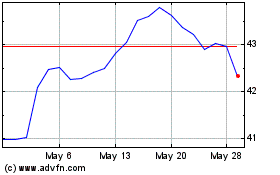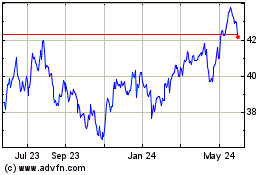As we make further progress into the final quarter of 2012, it
is worthwhile to point out that the year has been an eventful one
in terms of domestic and global economic developments. The markets
were flooded with a variety of events from across the globe that
have led us to this uncertain time in the markets (see 4
Low-Volatility ETFs to Hedge Your Portfolio).
Among some of the major events this year, arguably one of the
most important has been the ongoing European sovereign debt crisis.
This situation saw at least some progress thanks to an open ended
bond buying program by the ECB, although it remains to be seen if
this will be the cure to the malaise.
Meanwhile, on the domestic front, the much talked about
quantitative easing 3 (QE3) was implemented by the Federal Reserve
to improve the broad economic market (see Long Term Treasury ETFs:
Ultimate QE3 Play?). While this could help to spur the ongoing
housing recovery, broad growth is still elusive, suggesting that
the market outlook is still cloudy.
Similar Trends Across Risky Asset Classes
Amidst all this, a closer look at the performance of the riskier
asset classes interestingly suggests that they have been following
quarterly trends throughout the current fiscal year.
The equity markets started 2012 on a strong note as equities
across the board surged after a brief broad market slump in the
later half of last year. In fact, other riskier asset classes such
as commodities and emerging market equities also benefited from
this widespread optimism. As a result, most of the riskier asset
classes ended the first quarter in the green.
However, the tides quickly turned in the subsequent quarter
mainly thanks to lack of any concrete steps to tame the Eurozone
debt crisis and a generic slowdown in most parts of the world.
If that wasn’t enough, the U.S economy grew just by a mere 1.5%
in the second quarter. This has led to a sharp increase in
volatility in the riskier asset classes across the board and caused
investors to shift to a ‘flight to safety’ mode.
This also resulted in the U.S Treasuries (especially the long
dated ones) witnessing a significant rally as they act as the
ultimate safe haven investment avenues for investors in these
distressed times. However, the stock markets recovered
substantially in the third quarter as investors restored back
confidence in the risky asset classes.
Also, with the implementation of QE3 in the latter half of third
quarter, the markets were flooded with liquidity. The equity
markets responded well and as expected, commodity prices surged.
Thus, most of the ETFs tracking riskier asset classes witnessed
substantial inflows in their asset base and were up as the third
quarter ended (read Q3 ETF Asset Report: Investors Back in the
Market?).
Thus we see that this quarterly
“Up-Down-Up” trend within the riskier
asset classes has been nothing less than a see saw ride for the
investors.
ETFs Following Similar Trends
This phenomenon is exemplified from the ETF space as well. In
this regard we have highlighted three ETFs belonging to the typical
‘risky’ asset class, which track the broad markets within their
asset classes.
These are 1) SPDR S&P 500 ETF (SPY), which
tracks the performance of the U.S equities, 2) PowerShares
DB Commodity Index Tracking ETF (DBC), a futures backed
fund which tracks the basket performance of 14 actively traded
commodities and 3) iShares MSCI Emerging Markets ETF
(EEM), which tracks the performance of broader emerging
market equities.
Table 1: Returns Analysis and Moving
Average
|
ETF
|
Asset Class
|
1Q
|
2Q
|
3Q
|
4Q (Quarter till Date)
|
Current Market Price
|
200 Day Moving Average
|
|
SPY
|
Domestic Equity
|
12.69%
|
-2.84%
|
6.35%
|
-1.82%
|
$141.35
|
136.77
|
|
DBC
|
Commodity
|
7.30%
|
-10.59%
|
11.38%
|
-3.84%
|
$27.58
|
27.74
|
|
EEM
|
Emerging Market Equities
|
13.20%
|
-7.80%
|
5.62%
|
-0.29%
|
$41.21
|
40.62
|
4Q (QTD) Returns, ii) Current Market Price, and iii)
200 DMA as of 26th October 2012.
It is quite evident from the table above (Table 1) that all
these ETFs have exhibited similar characteristics in terms of their
quarterly movements, at least for the first three quarters. This is
interesting, especially considering the fact that most of these
ETFs do not have a very strong correlation among themselves (see
more in the Zacks ETF Center).
Of course, the equity based ETFs (i.e. SPY and EEM) have a
strong correlation of 91% among themselves, and the similarity in
their quarterly movements is justified by their strong
correlation.
However, SPY and EEM have weak correlation of 56% and 61%
respectively with their commodity counterpart DBC. Despite this,
its movement has exhibited similar trends with the equity ETFs.
Table 2: Correlation Matrix (using daily returns for
20 months)
|
ETF
|
SPY
|
EEM
|
DBC
|
|
SPY
|
100%
|
90.85%
|
56.55%
|
|
EEM
|
|
100%
|
61.79%
|
|
DBC
|
|
|
100%
|
What Lies Ahead?
The most important question at this point of time remains that
will the similarity in quarterly trends continue to remain across
these risky asset classes going into the fourth quarter? Or, will
they follow the trend and plunge again in Q4 after an uptrend in
Q3, just like the previous occasion?
Here are certain facts that hint towards the possible coming
path. In just about a month into Q4, all the three ‘risky’ asset
class ETFs have slid towards being in alignment with the persistent
quarterly trend and started showing similar signs of a downtrend.
In fact, on a Q4 quarter till date basis these three funds have
slumped, as is evident from Table 1.
Furthermore, the two equity ETFs are within striking distances
of breaching the crucial levels of the 200 Day moving Average,
whereas the commodity ETF, DBC, has already breached that level and
is trading below its 200 day MA. Thus, riskier asset classes might
not prove be a good short term play in the final quarter.
Although we are still early in Q4, the weakness in the third
quarter corporate earnings, speculation surrounding the
presidential election, the fiscal cliff and the aftermath of the
latest “Frankenstorm” Sandy are sure to
keep the riskier asset classes volatile in the near term — a trait
that is pretty much persistent with the second quarter (read Three
ETFs to Watch in Hurricane Sandy's Aftermath).
Want the latest recommendations from Zacks Investment Research?
Today, you can download 7 Best Stocks for the Next 30
Days. Click to get this free report >>
PWRSH-DB COMDTY (DBC): ETF Research Reports
ISHARS-EMG MKT (EEM): ETF Research Reports
SPDR-SP 500 TR (SPY): ETF Research Reports
To read this article on Zacks.com click here.
Zacks Investment Research
Want the latest recommendations from Zacks Investment Research?
Today, you can download 7 Best Stocks for the Next 30 Days. Click
to get this free report
iShares MSCI Emerging Ma... (AMEX:EEM)
Historical Stock Chart
From Dec 2024 to Jan 2025

iShares MSCI Emerging Ma... (AMEX:EEM)
Historical Stock Chart
From Jan 2024 to Jan 2025
